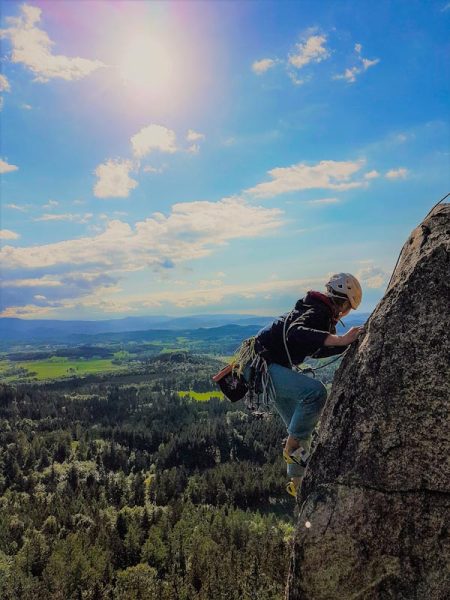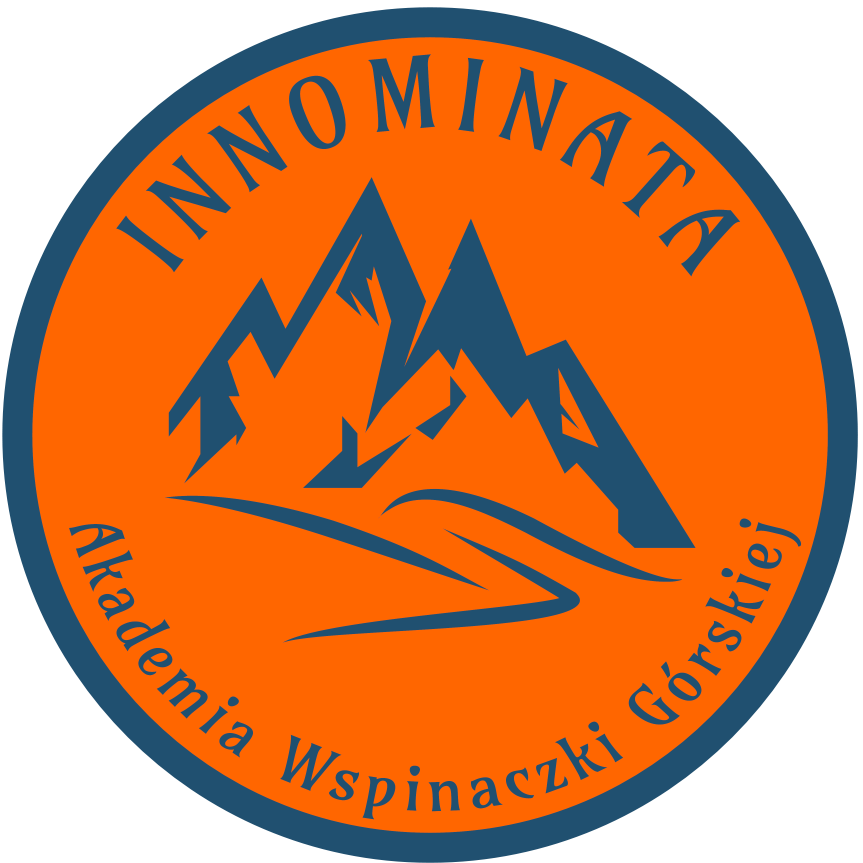Rock Climbing Basics is an intensive course designed for beginners, who have no previous climbing experience and for those who have climbed before. It is a comprehensive rock climbing course covering both sport and trad climbing. Beginners will build an understanding of rock climbing basics, while intermediate climbers will expand upon their existing knowledge and possibly get rid of some bad habits. We will focus on physical climbing skills, placing gear, abseiling, anchoring systems and multi-pitch climbing techniques. The course will provide you with the competence to rock climb independently at the crag and at the same time opens the door to further training in the mountains.
PRICE
480 EUR – ratio 1:4
720 EUR – ratio 1:2
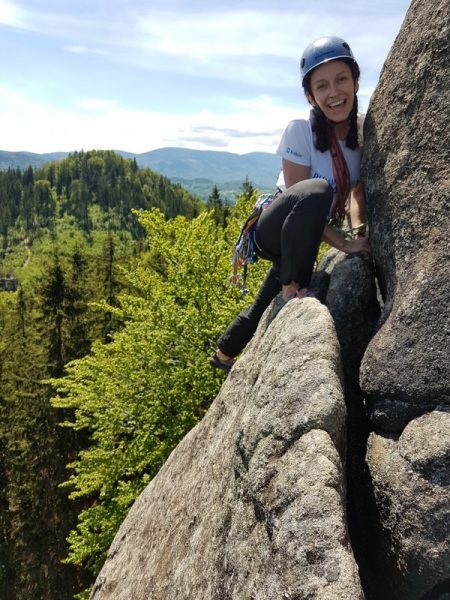
WHAT’S INCLUDED
The academy delivers professional training based on extensive experience as well as the latest knowledge and techniques. The price includes all the necessary climbing gear except climbing shoes. Upon completion, you will receive photos taken during the course and a relevant training course certificate. The price does not include travel costs, accommodation or meals.
HOW
The maximum group size is four people per instructor. On day one of the course we’ll meet at 10 a.m. After a short introduction, you will collect the climbing gear and we’ll be off. Most of the time will be spent at the crags. Practical classes are interspersed with theory, nevertheless the schedule depends on weather conditions. A training day lasts about 8 hours, so you should take packed lunch and drinks with you. On subsequent days we’ll usually start at 9 a.m. On the last day of the course, we will finish a little bit earlier, so that you have time to prepare for your journey home.
WHERE
Basic rock climbing courses take place in the Sokole Mountains, known as Sokoliki. It is a unique climbing area with excellent granite. It is precisely because of the high-quality rock and the characteristics of the local crags that we organise climbing courses in Sokoliki. Granite is perfect for trad climbing and for learning climbing techniques. Sokole Mountains are considered to be one of the best climbing destinations in Poland.
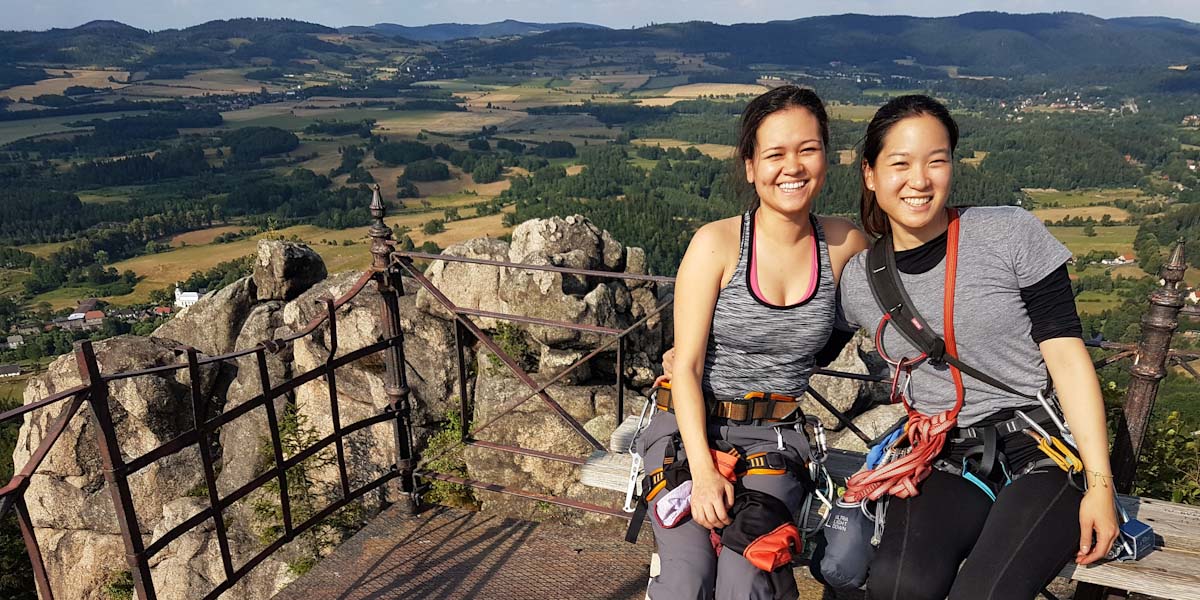
OUR BASE CAMP
You are welcome to stay at the climbing campsite named Tabor pod Krzywą. It is a charming place located in the middle of the forest within walking distance to the crags. You can choose to sleep in a wooden hut or a tent. It is a nature campsite, so the conditions are not luxurious, but it has a unique atmosphere and everything that you need. In the evenings you can sit by a fire, grill sausages and share your climbing stories. Of course you can find other accommodation, but then it may be necessary to use a car to get to the crags.
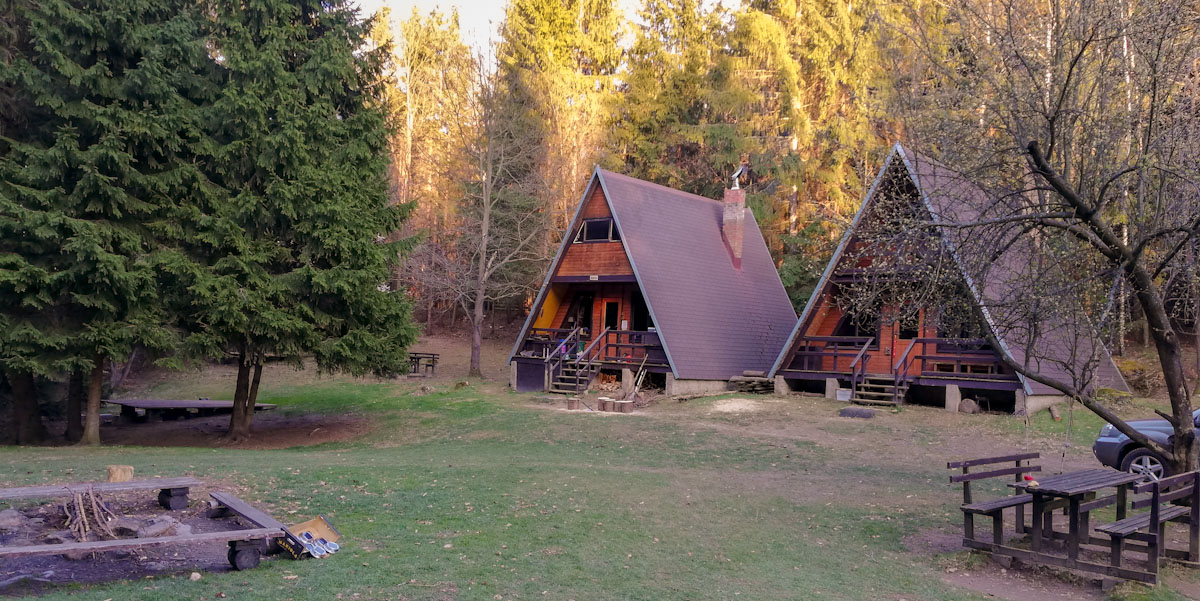
HOW TO GET THERE
It’s best to fly to Wroclaw (situated about 110 km from Sokole Mountains) and then rent a car. We can help in organising transport from the airport (entails an additional fee).
When travelling by car, you will reach the campsite from the village of Karpniki. Enter “Karpniki, Kościelna” into your nav system as the destination. The continuation of Kościelna street is a 2.5-kilometre long forest road leading to Tabor pod Krzywą. You can find some pictures of the road HERE.
If you travel by train from Wrocław to Jelenia Góra, leave the train in Janowice Wielkie. Then we will pick you up at the railway station and give you a lift to the campsite.
WHEN
The training courses are held between April and October according to the calendar you can find on the website. We usually start the 6-day course on a Tuesday and finish on a Sunday. However, we are flexible, and we can alter the dates to match your flight itinerary.
TERMS OF PARTICIPATION
» Course participants have to be at least 16 years old.
» Parental or legal guardian consent is required for participants under the age of 18.
» You can’t have any medical contraindications for climbing.
» Extreme Sports Travel Insurance Policy is highly recommended.
BOOKING PROCESS
» To make a reservation, it is necessary to fill out and send the booking form.
» To complete your booking process, an advance payment of 240 euro is required. You will find the transfer details in the received e-mail message.
» Once we have got your booking form and advance payment, we will confirm the course reservation and send you further information.
TRAINING PROGRAM
Theory:
» Climbing gear.
» Common climbing mistakes to avoid.
» Natural rock formations.
» Ascent styles and grading systems.
» Trad climbing; trad anchors.
» Impact force and fall factor.
Practical training:
» Knowledge of knots: overhand knot, figure 8 knot, clove hitch, munter hitch, friction knots, water knot.
» Tying a rope into a climbing harness.
» Coiling and stacking a rope.
» Climbing technique: handholds, footwork (smearing, edging), balance and movement.
» Specific rock climbing techniques.
» Spotting and belaying; correct use of a belay device.
» Double check; climbing calls.
» Top-rope climbing.
» Setting up a top-rope.
» Abseiling; extended rappel device.
» Sport climbing skills; clipping a rope into quickdraws.
» Lead climbing a bolted route.
» Cleaning an anchor and recovering quickdraws.
» Catching a fall.
» An introduction to trad climbing.
» Carrying gear while climbing.
» Placing trad climbing gear; use of natural features.
» Trad lead climbing.
» Building rock climbing anchors.
» Belaying the second from a top anchor.
» Multi-pitch climbing; swapping leads.
» Multidirectional anchors; opposing nuts.
» Multi-pitch abseiling.
» Guide mode belaying device.
» Assisted braking belay devices.
» Self-rescue skills:
• ascending a rope;
• tying off a belay device;
• locking off a rope when belaying;
• lowering in guide mode.
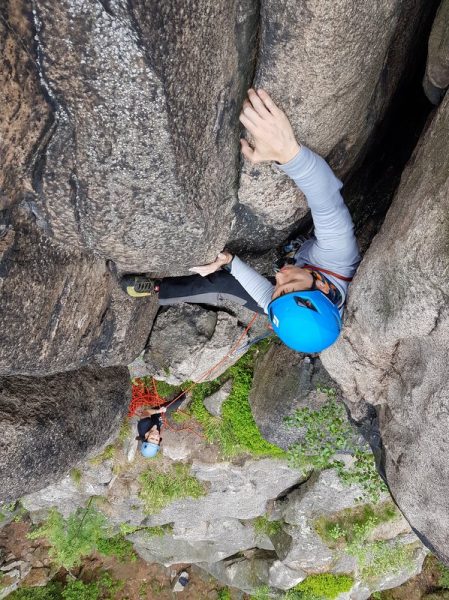
WHAT TO TAKE WITH YOU
» documents
» parental consent form (participants under 18)
» climbing shoes
» approach shoes (sports or trekking)
» comfortable clothes for climbing (preferably 3/4 length trousers)
» warm clothing adapted to changeable weather
» hat and gloves
» rainwear
» backpack for carrying equipment (30-40 litres)
» headlamp and extra batteries
» toiletries
» sandals
» sleeping bag
» kitchen dishes (not necessary)
» sleeping mat (if you’re going to sleep in a tent)
» tent (you can rent one at the campsite)
WHAT CAN BE USEFUL
» chalk bag
» tick oil or spray
» sun cream
» sunglasses
» umbrella
» thermos
» camera
